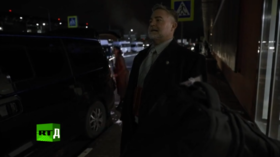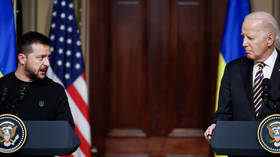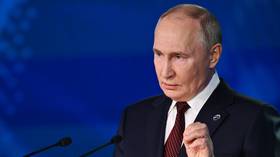US sanctions lead Moscow-Washington relations into dead end – snr Russian diplomat
Russia’s deputy foreign minister says the new US sanctions were no surprise for Moscow. Sergey Ryabkov emphasized that any attempts to force Russia into changing its policies were doomed to failure and only complicate international relations.
“Even though this has not come as a surprise for us, the very fact of increasing sanctions pressure and new attempts to force us into changing our political course through sanctions cause deep concern,” Ryabkov was quoted as saying by TASS on Wednesday.
“The latest anti-Russian actions undertaken by the United States are only moving the relations between our two nations further into a dead end,” he said, adding that Moscow would continue to follow the investigation of alleged Russian meddling with the US presidential polls “with great skepticism.”
The diplomat also noted that in his view the latest American moves resemble a mania, because Washington had already introduced sanctions against 70 nations. He added that in some cases, like with Iran, the sanctions looked very much like a pre-planned provocation seeking to further aggravate international relations.
Ryabkov also told reporters that he considered the recent anti-Russian accusations made by Twitter, Facebook and Google a result of pressure on the side of the US authorities.
“I am bewildered by the fact that one day these internet giants said that someone has spent, for instance, US$5,000 for some political advertising and on the next day they say that 40 million US voters had been affected by some Russian socio-political ads. Their ends just don’t meet, they are getting confused while giving testimony, because they had been intimidated by the US authorities who, in turn, also have little understanding on where they should direct this whole situation,” he said.
Earlier this week the US Treasury Department announced a new set of anti-Russian sanctions, banning American citizens and companies from participating in Russian energy projects related to offshore oil exploration and production in the Arctic.













